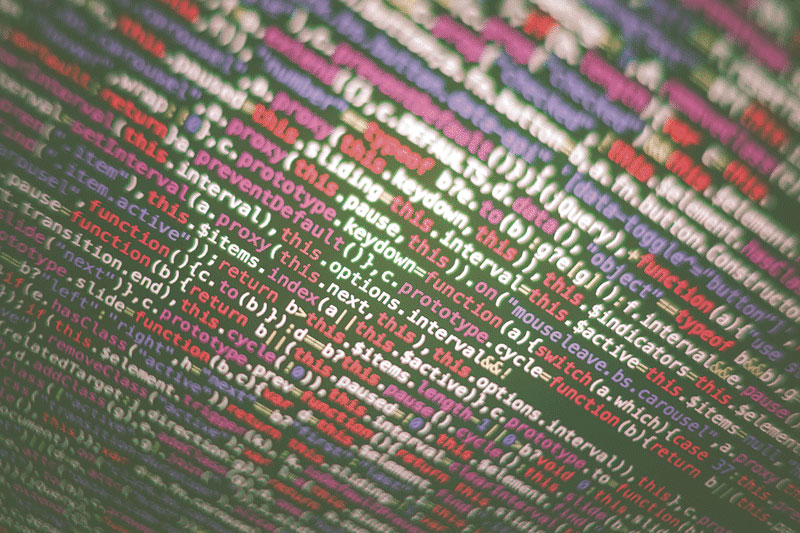Big Data is an important key concept of our time. Whether in context of IT, knowledge management, industry 4.0, artificial intelligence or close fields, processing big data will influence us all. But what impact does big data have on our personal lives aside from our business personas? Let’s start with two areas: smart homes and social media.
What is Big Data?
Big data is a term for processing a vast amount of data in short time, it can reference the data volume or the technology behind it. Merriam-Webster defines it as „an accumulation of data that is too large and complex for processing by traditional database management tools„, which stresses the need for powerful technology. Some other definitions focus on the function of computational analysis to „reveal patterns, trends, and associations, especially relating to human behaviour and interactions“ (Oxford Living Dictionaries). The Oxford English dictionary sums it all up:
[Big data is] data of a very large size, typically to the extent that its manipulation and management present significant logistical challenges; (also) the branch of computing involving such data. –Source: OED
Big data could furthermore be defined by the 3 big V’s: Volume, velocity, variety. Big data impresses by its sheer amount (=volume), nowadays every online click (and offline step) creates unstructured data that needs to be processed, cleaned, structured and interpreted – we are talking exabytes and petabytes here. Google alone processes around 24 petabytes (=24,000 terabytes) of data – each day.
Big companies collect those terabytes of data in logs on a daily basis (=velocity). The speed, in which new data is created is still accelerating, some data needs to be processed instantly for real-time use. The data handling is impeded by the great diversity of sources resulting in many different data formats (=variety) that need consolidation.

Oracle still adds another V to the list: value, defining the usefulness and profitability of analysis results.
Now, what value could data have for a company? Data could present the customer’s preferences, their sentiments (the „emotional tone of statements made online about brands“ or opinion mining), their location and hardware and so on. This is valuable information for companies in order to recommend suitable further products (up-selling, cross-selling), run ads at the right touchpoint and other ways to directly increase their turnover. But there is more to it: Big data can reveal general trends in consumer behaviour and establish better long-term brand loyalty. This is the point where I as consumer get in! My role on the internet is sure one of a consumer, customer, fan or critic of a brand. The more the company knows about me as a customer, the easier it is to predict my actions and feelings.
Big data processing is supported by a vast number of new technologies, with predictive analytics, knowledge discovery and data virtualisation among them, which is creating an entire industry by itself.
Where does Big Data influence my personal life?
Big data in the smart home
Small gadgets and devices around our house should ease our daily lives: Applications regulating temperature, light and airflow in the house, operating the washing machine and the dish washer from far as well as steering entertainment equipment like TV, audio and video transmitters. The internet of things (IoT) is already transforming our daily lives and reducing the reluctance to share data with digital devices. Convenience and security sit both at the very ends of the same line.
Convenience and security sit both at the very ends of the same line.
At least since we invited Amazon’s Alexa, Apple’s Siri, Google’s Assistant and Microsoft’s Cortana (even in cooperation) into our houses, we needed to discuss privacy and data security. Digital personal assistants do not only deliver information, they also collect data for their work: Contact lists, locations, chat protocols, web search results etc. Siri will know where you go every Wednesday, will show you the quickest route by car and reminds you to bring an umbrella, because it’s raining there. Personal home assistants that react to the initialisers like „Alexa“ or „OK, Google“ will keep their microphones open all the time, although manufacturers keep reassuring users that data is only collected when set off deliberately.
Of course also Netflix sees what you are watching.
Big data in social media
Social media platforms make high usage of predictive analytics based on big data. Wherever you click, whatever you like, share or even view does not go unnoticed. Your quickly scribbled then hastily deleted draft might be stored by the machine, so does stalking your ex-boss. I’m surely not overstretching when saying, social media is based on big data. The way we communicate is closely monitored, analysed and interpreted by the big social media companies. Facebook knows you better than your friends do and an online store knows you are pregnant before you do.
The idea of big data for companies is not to create a profile of yourself as this one special person, mere connections are interesting, general tendencies, structures, trends and habits. The more data the machine gets to process, the more knowledgable it becomes.
There is also „small data“ and the common saying „big data is for machines, small data is for people“, since small data is defined as „accessible, informative and actionable.“ (Techtarget)
Big data in employment
According to Martin Ford, big data poses a threat for human employment, since robots will soon be able to undertake a majority of the tasks that up to now have been performed by humans. Machine learning, deep learning and artificial neural networks are some technologies supporting that.
According to Ford1, big data will have two major impacts on knowledge-based occupations: Firstly, some jobs and tasks will simply be lost for humans by automation through machines and robots. Secondly, big data will change the way organisations work. The demand for human experience, judgements and decision will decrease, when computers are also able to perform higher analytic tasks – which they already do.
Is there another area which you believe big data will influence?
Read on…
- „Big Data News: A Revolution Indeed“ – Gil Press on Forbes.com (2013)
- „12 Big Data Definitions: What’s Yours?“ – Gil Press on Forbes.com
- „A very short history of big data“ – Gil Press on Forbes.com (2013)
- Gil Press on Twitter, his website whatsthebigdata.com
- „An Enterprise Architect’s Guide to Big Data“ – White Paper by Oracle
Image credits: Photo by Markus Spiske on Unsplash (CC0)




I love that you included Martin Ford’s thoughts into you blogpost. We need to prepare people for a future without employment as we know it now. It may affect generations afterwards, change needs time, also in the educational system. Developments shouldn’t be overlooked, education needs to change.
Thank you, totally agree! Speed of transformation and development (technology too quick here, structures too slow there…) is definitely an issue. And in case you haven’t yet gone through Ford’s book – I can recommend it wholeheartedly.